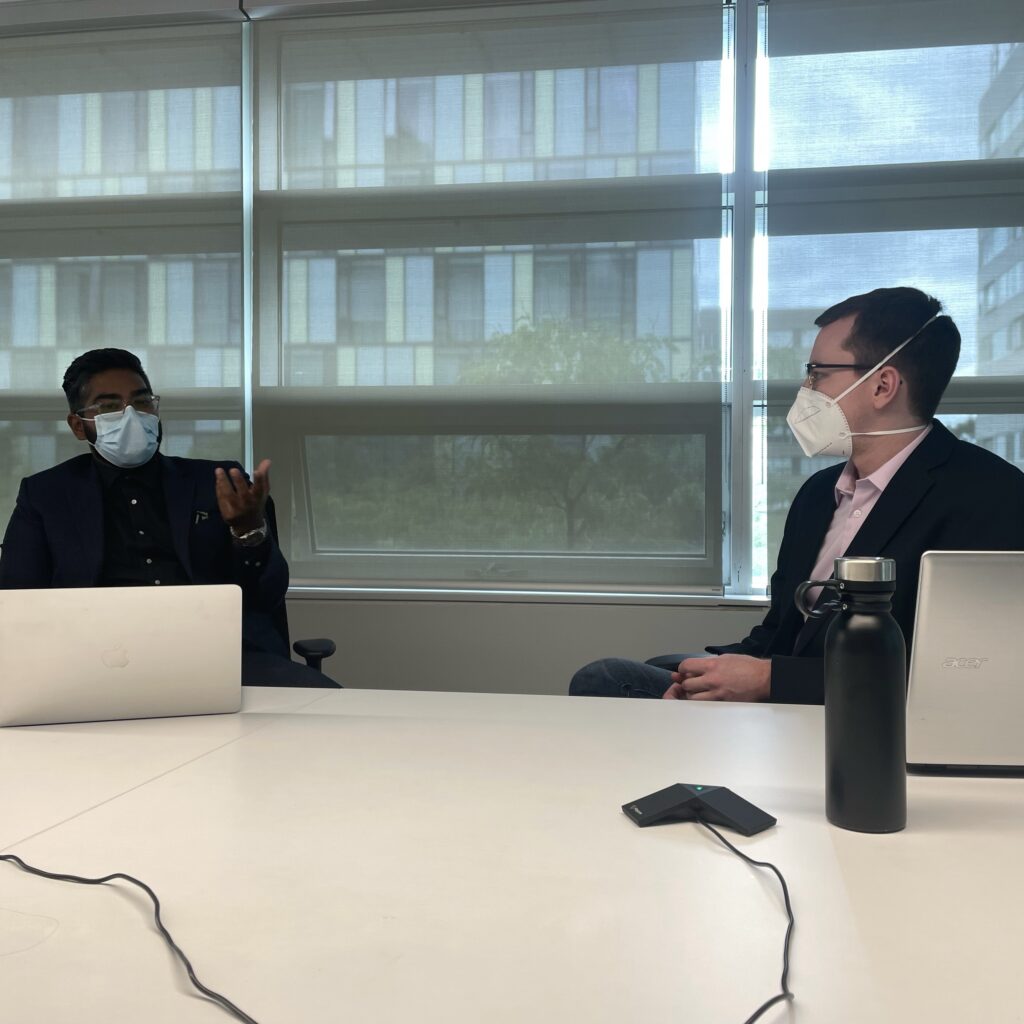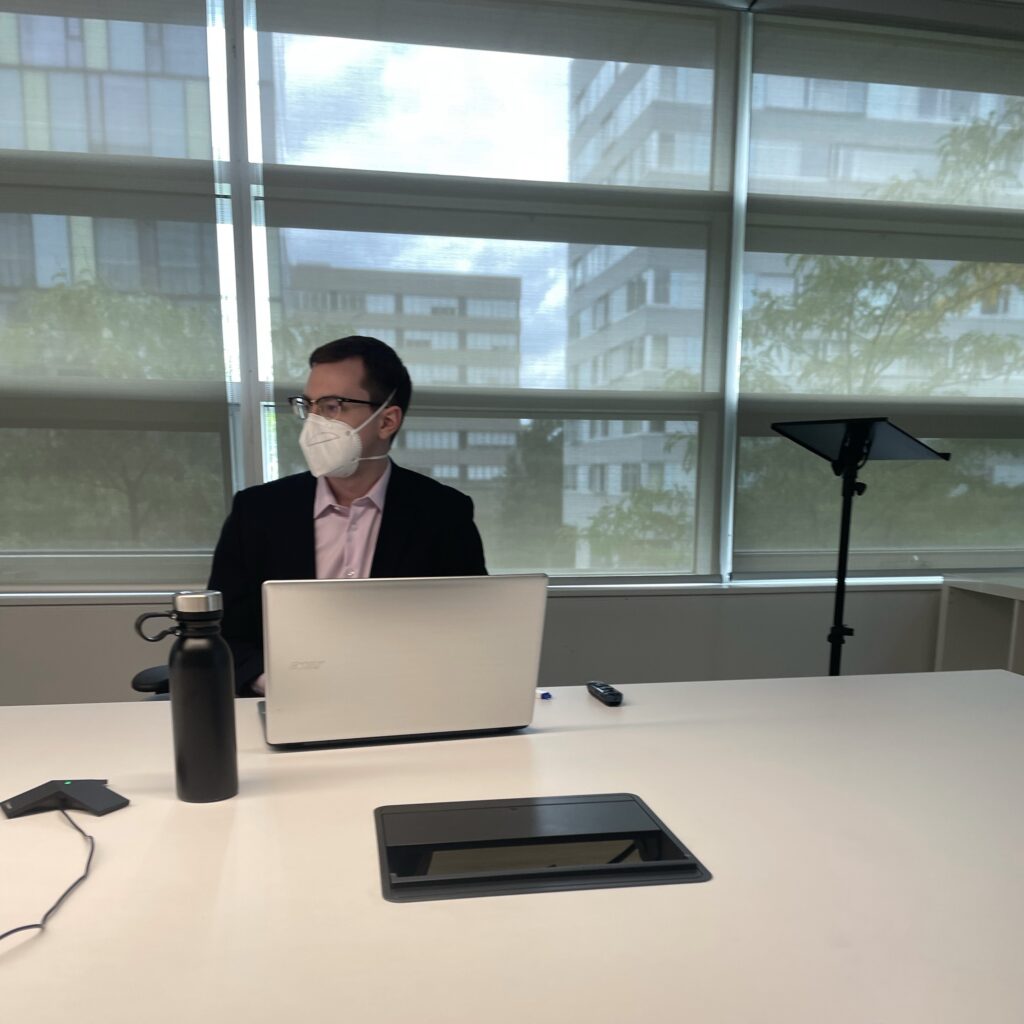Post
Published on July 5, 2023

On September 7, 2022, Dahdaleh graduate student fellow in the Lassonde School of Engineering, Michael De Santi presented his work analyzing the technical aspects of machine learning used in the Safe Water Optimization Tool (SWOT)
The number of people being displaced has been rapidly growing in the last two due to armed conflict and natural disasters. These crises are often exacerbated as those displaced by conflict and disaster are then exposed to outbreaks of communicable disease in refugee and internally displaced person (IDP) settlements, often due to unsanitary conditions contaminating household stored drinking water. This phenomenon of waterborne illness spreading through previously safe drinking water has been identified in Uganda, Malawi, Kenya, Sudan, and South Sudan, among others.
Chlorine removes pathogens and prevents re-contamination. However, over time free residual chlorine (FRC) can lose its effectiveness and protection which can cause disease spread. There are many factors that contribute to chlorine decay, such as water handling, behavioural interaction, water environmental factors. SWOT aims to probabilistically model FRC decay to forecast the likelihood of having enough FRC to improve chlorination guidance in refugee and IDP settlements.
Michael explained that their use of probabilistic modelling captures a more accurate representation of FRC concentration and allows users to make decisions based on risk. This method of modelling prioritizes two behaviours: the ability to predict unsafe occurrences (i.e., FRC levels fall below 0.2 mg/ litre) and effectively reproduce underlying distribution of data. One of the challenges faced on the SWOT is that conventional machine learning training approaches do not meet these priorities for probabilistic models. Michael demonstrated how a novel cost-sensitive learning approach aligns the cost function used to train the models with these desired behaviours. This novel approach outperformed a conventional training approach to improve the forecasting abilities of the SWOT. These improvements to the SWOT can provide better FRC targets, lower the risk of recontamination during storage, and ultimately prevent the spread of waterborne illnesses.
Watch the seminar presentation here:
Connect with Michael De Santi
Themes | Global Health & Humanitarianism, Global Health Foresighting |
Status | Active |
Related Work | |
Updates |
N/A
|
People |
You may also be interested in...
Humanitarian Water Engineering Lab Kicks Off New Projects in Uganda
This June, researchers from the Humanitarian Water Engineering (HWE) Lab at the Dahdaleh Institute for Global Health Research travelled to Uganda to launch two new humanitarian health research collaborations in crisis-affected communities in Uganda. Dr. ...Read more about this Post
Global Health: Wellness Impact Lab (WIL)
The Dahdaleh Institute has a bold vision for achieving global health for all. A new lab has been created – the Wellness Impact Lab (WIL) – led by Dr. Harvey Skinner, PhD (Senior Fellow) and ...Read more about this Project
Recap — Gendered Employment and Work Conditions in Central America
On September 21, 2022, Douglas Barraza and Eduardo Castro examined structural gender inequality in Central America. Douglas introduced survey results about the labour conditions across various countries in Central America and how these circumstances have ...Read more about this Post


